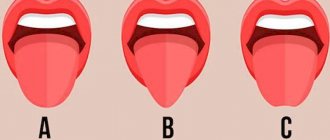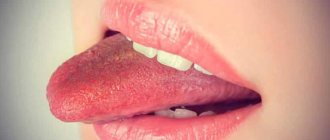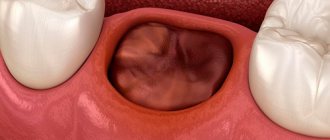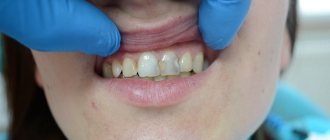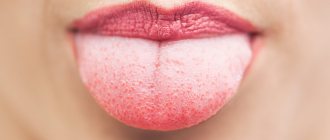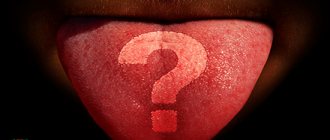What is tongue coating?
Plaque on the tongue is a specific formation on this organ of different colors, shapes and sizes. What does gray coating on the tongue mean? This is the very “litmus test” by which you can diagnose the development of acute and chronic diseases. It is one of the signs of infections in the body.
The colors of the plaque can be very different:
- white;
- grey;
- green;
- brown;
- blue;
- black.
We will talk about the gray coating on the tongue. In adults, this problem occurs very often.
Features of the raid
Diagnostic measures aimed at identifying diseases by the color of the tongue should take into account the characteristics of plaque. There are two types of mucosal lesions:
- Physiological plaque
. This phenomenon is observed when the papillae are stained with food dyes (black tea, coffee, fruit and vegetable juices, confectionery). Physiological coloring quickly disappears when you avoid products containing coloring pigments. - Pathological plaque
. Appears as a result of functional disorders of visceral organs or infectious diseases of systemic organs and structural tissues of the nasopharynx.
When diagnosing, the physiological and pathological characteristics of plaque are differentiated by examining the quality of the latter. If a change in the surface of the mucous membrane is caused by coloring pigments, then such a manifestation does not pose a danger to the body and is of no value in establishing a diagnosis.
When not to be afraid
There is no need to think that the appearance of a gray coating on the tongue is a sign of an imminent serious illness. Here are a number of cases when its appearance should not scare you at all:
- A slight whitish coating. It can be easily removed using a special toothbrush attachment.
- Appears after sleep.
- You have noticed a coating on your tongue during the hot season.
But if its layer is dense and the color is intense, then this is a reason to believe that something is wrong with your body.
Symptoms that indicate a serious problem
Gray coating on the tongue in adults (photos showing what a “coated” tongue looks like are, to put it mildly, unpleasant, so we will refrain from such illustrations) is a phenomenon that can be accompanied by a number of alarming symptoms:
- Unpleasant specific odor from the mouth.
- Ulcers, cracks on the surface of the tongue.
- The plaque is concentrated on the tip of the organ, the root, and the side parts (we will talk more about the localization of plaque and the connection of this phenomenon with specific diseases later).
All this, coupled with the formation of plaque, is a reason for an early visit to a gastroenterologist, therapist or dentist.
Causes of gray plaque on the tongue in adults
A variety of factors can cause a gray coating on the surface of the tongue - from improper oral care to life-threatening and health-threatening diseases. The main causes of gray plaque on the tongue in adults are as follows:
- Taking antibiotic medications. This plaque can be easily removed with a toothbrush attachment during morning and evening hygiene. As a rule, it gradually goes away with the cessation of drug treatment. If the formation is difficult to remove with a brush, the reason is not due to medications - only an experienced doctor can help identify it.
- Morning appearance. As we have already said, this is a completely normal physiological phenomenon - a coating on the tongue in the morning after sleep. It is light in color and not accompanied by a scent. You can fight it with the help of antiseptic mouth rinses, which also eliminate viruses and pathogenic bacteria.
- HIV. With the immunodeficiency virus, patients are often diagnosed with the appearance of a gray coating on the tongue. The disease first affects the gastrointestinal tract, which signals it in this way.
- Angina. The cause of a gray coating on the tongue in adults can also be a sore throat. During illness, a huge number of pathogenic bacteria accumulate in the oral cavity. The result is a dense coating with an unpleasant odor. Therefore, you must not forget to rinse your mouth with special balms, herbal infusions, and brush your teeth twice a day.
- Gastrointestinal diseases. In this case, other symptoms may also appear - nausea, stomach pain, etc. If nothing but plaque is observed, then it is enough to simply improve your diet.
- Dehydration. The appearance of plaque also indicates this factor. Dry plaque specifically indicates dehydration. If it is wet, this is a sign that a lot of mucus has accumulated in the body.
- Insufficient care. You can do a test - brush your teeth properly, and then treat your mouth with mouthwash. If after 3-4 hours the plaque has not returned, it means that you simply did not pay enough attention to oral hygiene.
The causes of gray plaque on the tongue in adults in some cases may be the following:
- Excessive addiction to fried and spicy foods.
- Diphtheria (gray film).
- Decreased immunity.
- A consequence of bad habits - smoking, alcoholism.
- Fever.
- Chronic tonsillitis (plaque on both the throat and tongue).
- Oral candidiasis.
Principles of diagnosis by language
Determining diseases by the condition of the tongue is an undervalued technique in European diagnostics, but is widely used in Asian countries, especially in traditional Chinese medicine. According to clinical observations, there is a close connection between damage to internal organs and different parts of the mucous membrane.
When carrying out diagnostics, the color, density and smell of plaque are taken into account.
To accurately determine the affected organs, it is necessary to understand which parts of the mucous membrane react to which organs. In accordance with the classic map of interconnected departments, the following matches are distinguished:
- the tip and anterior edge of the tongue react to changes in the functioning of the cardiovascular and respiratory systems;
- a longitudinal groove indicates problems in the gastrointestinal tract;
- the lateral surfaces are connected with the organs of the hepatobiliary and urinary systems;
- the basal transverse line coincides with the spine and other parts of the musculoskeletal system.
- the location of the projections of the internal organs on the tongue coincides with the schematic placement of the internal organs.
Do not forget that the appearance of plaque and ulceration of the mucous membrane in any part of the tongue indicates the presence of pathological processes in interconnected organs.
Location and nature of the raid
What a gray coating on the tongue indicates can be determined by its location:
- On the tip: heart or lung disease.
- Middle of the tongue: problems with the spleen.
- Sides: The liver or gallbladder may be affected.
- Root of the tongue: “problems” with the kidneys or intestines.
It is also important to pay attention to the thickness of the layer: if it is thin, then there are fewer reasons for concern. Such a plaque indicates a cold or a disease that has just begun to develop. If the coating is thick and does not allow you to see the natural color of the tongue, the disease may be serious or infectious.
Symptoms of the disease
A brown coating on the tongue may be accompanied by obvious symptoms or their complete absence. During a visual examination, a specialist evaluates the pathology based on several signs.
Hue
It may be light brown. In this case, symptoms associated with diseases of the respiratory system are considered.
Yellow-brown. This indicates pathologies of the gastrointestinal system, the presence of digestive problems, and malfunctions of the intestines.
A green-brown tint to the tongue indicates the development of a fungal infection. This color of the tongue can occur when taking medications or antibiotics. It manifests itself during hormonal imbalance or during puberty.
A dark brown tongue indicates chronic diseases of the liver, gallbladder, and pancreas.
Thickness
Plaque is present on the tongue in varying amounts. A thin layer indicates the initial stage of the disease. In the case of thick plaque, which is difficult to remove, we are talking about the chronic stage of the pathology.
Consistency
The coating on the tongue can be of different consistency: dry, wet, greasy. Increased dryness of the tongue indicates disturbances in the functioning of the salivary gland. They can be caused by stones in the salivary gland, infectious diseases of the oral cavity, and inflammatory processes. Wet plaque and swollen tongue indicate an insufficient amount of vitamin B. This is a sign of thyroid dysfunction and iodine deficiency.
Localization
The location of plaque on the root of the tongue means a disruption in the functioning of the digestive system. It is recommended to check the functioning of the intestines, pancreas, stomach and liver. Localization of plaque in the center suggests disruption of the cardiovascular system. The tip of the tongue is responsible for the respiratory organs. Plaque on it indicates possible pneumonia, asthma, bronchitis.
In addition to the characteristics of the plaque itself, experts take into account the accompanying symptoms that accompany its formation.
Disorders of the digestive system are accompanied by:
- flatulence;
- diarrhea;
- bloating and abdominal pain;
- belching;
- feeling of fullness in the stomach;
- heartburn and nausea.
In case of liver pathologies or hepatitis, the following is noted:
- yellow tone ;
- general weakness;
- increased temperature ;
- decreased appetite;
- darkening of urine;
- discoloration of stool .
When dehydrated, in addition to plaque, the patient experiences severe thirst, the volume of urine excreted per day decreases, and sweating increases. The presence of plaque without accompanying symptoms may not imply serious health problems.
Plaque shade
The shade of gray can also give you an idea of the possible cause of the plaque. For better understanding, we have presented the information in table form.
| Nature of the raid | Possible reasons |
| Yellow-gray | Barely noticeable - a characteristic phenomenon for the hot period of the year. Weak plaque - unbalanced diet. Saturated + other symptoms - gastrointestinal diseases, in particular the liver, gall bladder. May indicate stagnation of bile. The lower part of the tongue may be the beginning of the development of jaundice. |
| Exactly gray | Improper functioning of internal organs. Most often this is the intestines or stomach. |
| Taupe | Typical for heavy smokers and alcoholics. It also appears in lung diseases. |
It follows: plaque is a reason to see a doctor.
Diagnosis and treatment
Based on the location, color, and density of plaque, your attending physician can assume that you have a particular disease. Of course, diagnostics will not cost only this - a specialist will interview the patient, examine him, and in some cases give a referral for tests and instrumental examinations.
As often happens, the causes and treatment of gray plaque on the tongue are interrelated. Plaque is not an independent disease, it is its sign, a symptom that will go away when the disease is cured. If the reason lies in improper oral care or an unhealthy diet, then the doctor will give you recommendations on hygiene procedures and creating the right diet.
Cyanosis
With cyanosis, which causes a bluish tint of the skin and mucous membranes due to a reduced level of oxygen in the blood, a change in the normal color of the mucous membrane of the tongue to blue is also observed. There are two types of cyanosis:
- Central. Bluish discoloration of the lips, tongue, conjunctiva.
- Peripheral cyanosis. Bluish discoloration of the skin of the hands or feet, as well as nails.
Peripheral cyanosis is a local change, while central cyanosis indicates the presence of diseases of internal organs, such as cor pulmonale (changes in the right parts of the heart - their increase due to increased blood pressure), hypoxemia (low oxygen content in the blood due to circulatory disorders).
These diseases are caused by chronic disorders of the respiratory system, which increases or provokes heart failure.
In addition, blue tongue can occur in patients with renal failure (pathology of the kidneys with impaired formation and excretion of urine).
As you understand, you should not self-medicate and you must promptly seek help from your attending physician, who will make the correct diagnosis and select treatment for you.
Preventive measures
To prevent a gray coating on the tongue from spoiling your aesthetic appearance, it is useful to adhere to the following simple rules:
- Maintain proper oral hygiene: brushing your teeth and tongue in the morning and evening, treating the oral cavity with antiseptic rinses.
- Healthy diet: a minimum of salty, fatty, spicy, fried foods, more fruits and vegetables, including stewed, boiled, steamed.
- Quitting bad habits - smoking and alcohol.
- Healthy and active lifestyle.
How to fight
In order to effectively deal with plaque on the tongue, the true cause of its appearance should be established. To do this, you should do a small test. In the morning, brush your teeth and tongue with a toothbrush and toothpaste, removing as much or as much plaque as possible from the surface of your tongue. Time it until it appears again. If less than three hours have passed, during which time you have not eaten or drunk anything, and it has already appeared and has a fairly dense structure, then it most likely indicates the presence of some kind of disease. If plaque begins to appear after three hours or after eating, this may indicate insufficient oral hygiene.
If plaque is a consequence of insufficient oral hygiene, it is necessary to thoroughly clean not only the surface of the tooth enamel and gums, but also the tongue and the inside of the cheeks.
People's Councils
All the recommendations and recipes presented below will help eliminate precisely the unpleasant-looking gray plaque, and not the reason that caused it.
Traditional healers recommend the following remedies to help you get rid of plaque on your tongue as soon as possible:
- Carrot juice. It both treats and eliminates formations on the tongue. It is enough to lubricate the organ several times a day with a tampon soaked in this juice.
- If the plaque is caused by bacterial growth, then decoctions of plantain, chamomile, oak bark, and yarrow will help. For example:
- Chamomile based decoction. Pour a few tablespoons of herb into 1 cup of boiling water. Wait 30 minutes. After this (if the broth has cooled sufficiently), you can rinse your mouth. Carry out the procedure 1-3 times a day.
- Oak bark decoction. Pour 10 g of base into one glass of boiling water. Infusion time - 2 hours. It is recommended to rinse your mouth with this decoction after every meal, as well as in the morning and evening after brushing your teeth.
Gray plaque on the tongue has a lot of reasons - from banal lack of oral hygiene to serious illnesses. You can find out what it is a sign of by its location, the nature of the shade, and thickness. However, if you have any doubts about the satisfactory state of your health, as well as other alarming symptoms, you should still entrust the diagnosis to an experienced specialist. He will prescribe treatment or give recommendations that will help you get rid of both the most unpleasant symptom and its cause.
Treatment prognosis and possible complications
The prognosis of treatment will depend on what initial disease was detected in the patient. In case of dental problems, a few visits to the dentist are enough to get rid of most of the problems that arise. Diseases of the gastrointestinal tract can lead to bleeding, which requires urgent hospitalization and surgical treatment. The success of treating infectious diseases strongly depends on the patient’s immunity and the timeliness of starting the use of prescribed medications.

